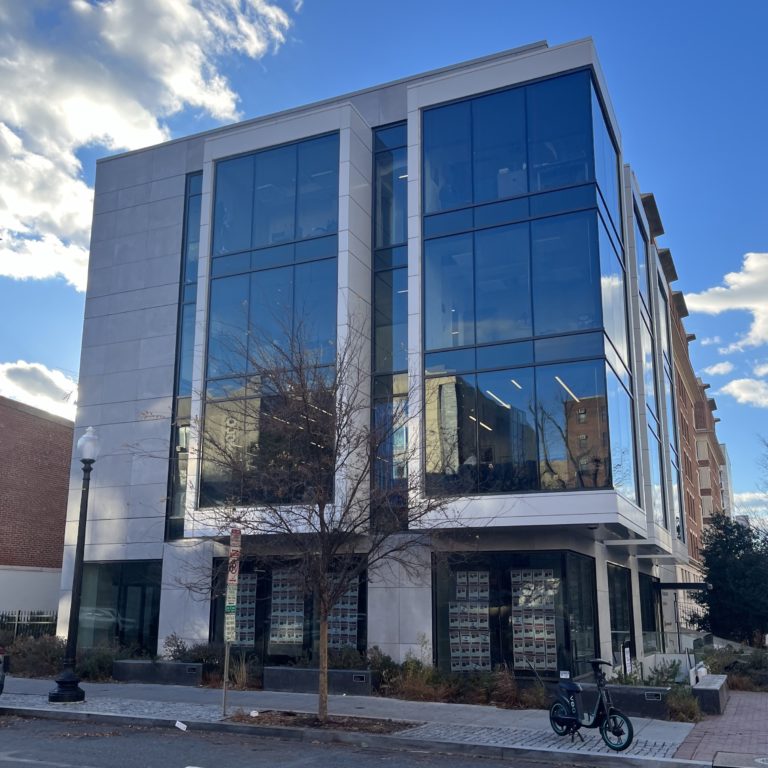By Roxie Parker
After passing two security checkpoints and an elevator ride to the basement, I experienced my first and last Hillel Shabbat dinner.
Walking in, I was immediately complimented on my Reputation era “costume”—a normal all black outfit—at which point I realized the dinner was Taylor Swift themed. Once the Rabbi arrived he greeted the 15 or so regulars by name and led the group in a series of prayers at first familiar to me and then completely foreign.
After everyone grabbed food, the Rabbi began checking in on each student, taking time to introduce himself to me. The rest of the evening was spent talking about campus-life, though almost everything was filtered through the lens of the current conflict in Gaza and how it made being Jewish on campus more difficult.
For some, this was probably what they look for in a Jewish organization: prayer, Shabbat dinner, and discussion of current events from a Jewish lens. But I felt guilty in that space for not knowing the complex prayers. And underpinning our discussion was the implication that GW Jews should feel angry and afraid of the pro-Palestine demonstrations on our campus and others.
In what should have been a supportive group of my peers, I had to justify my own sense of safety on campus.
I do not feel a connection to the Jewish organizations at GW. I wish there was a secular, student run Jewish organization that prioritizes community and shared experience instead of religion or a position on Israel.
According to a 2021 Pew Research Center study, 27% of American Jews “claim no religion” or in other words, are secular. For Jews aged 18-29, this portion rises to 41%. This is consistent with the general American population, which polled at 28% for “no religion.” In a similar 2013 report, 62% of American Jews interviewed said “being Jewish is mainly a matter of ancestry and culture” while only 15% said it is “mainly a matter of religion.”
In light of these trends, it is surprising that on college campuses Jewish organizations are overwhelmingly religious. Hillel, which is the largest collegiate Jewish organization in the world, simultaneously recognizes that “there isn’t one way to be Jewish” while stressing “Jewish learning, holiday and Shabbat celebration.”
At GW, there is an even bigger problem: the orthodox organization Chabad is the real center of campus Jewish life. Unlike Hillel, Chabad is staunchly rooted in religious study and worship of god. On their official website, they describe their philosophy as reflecting “the deepest dimension of G-d’s Torah,” teaching “understanding and recognition of the Creator, the role and purpose of creation, and the importance and unique mission of each creature.” Chabad GW tones down this language on their website offering to help students “gain deeper understanding and appreciation of their Jewish heritage.” But their self-characterization as “an open center for prayer and study” belies the organization’s deeply religious orientation.
Both Chabad and Hillel serve important roles on campus, providing practicing Jewish students a space to continue their religious studies and connect with others like them. However, for Jews who do not study Torah or pray before each meal, these institutions do not offer the sense of belonging they claim to cultivate. What’s left for those remaining Jews?
A search of keywords on GW Engage yields nine org results, one of which is defunct. The eight remaining groups can be sorted into three categories: religious organizations created or supported by Hillel and Chabad, Jewish fraternities and sororities, and activist groups focusing on the Israel-Palestine conflict.
For some, these eight organizations may fulfill their need for Jewish community, but I believe for secular Jewish students who are uninterested in joining Greek life, there is not a viable option for meaningful, non-politicized connection with other Jews.
A 2020 Pew Research Center study found that “Jews ages 50 and older are much more emotionally attached to Israel than are younger Jews.” Everything about the Hillel dinner I attended, down to the tacky Eras Tour theme, confirmed this disconnect between older and younger Jews. It seemed that in asking about our reactions to on campus protests the Rabbi was seeking anecdotes of a perceived lack of safety here to share with pro-Israel parents, alumni, and donors. After all, Hillel’s website highlights their efforts to instill in young Jews an “ongoing relationship with Israel.” Chabad boasts a similar policy on their site.
Whatever one’s ties to Israel, they do not make up the entirety of any person’s identity. And with young Jews, those ties are increasingly becoming less formative. Jews my age have more complex thoughts on Israel and are offered opportunities to express or interrogate their beliefs in multiple Jewish political orgs. Still, we’re missing a secular space created by-and-for students that acknowledges the Jewish experience is larger than this. The rich culture and history of Judaism has to mean more than serving a religious or political ideology.
This is a turbulent time to be a Jew, and a community-based, rather than faith-based, organization could help people like me sort through their feelings and find support. From Jews I know on this campus and others, the desire for genuine connection and support outside of the Temple seems to be a shared need. We know best what events and gatherings would support our well-being on campus, and should have an organization dedicated solely to that.



